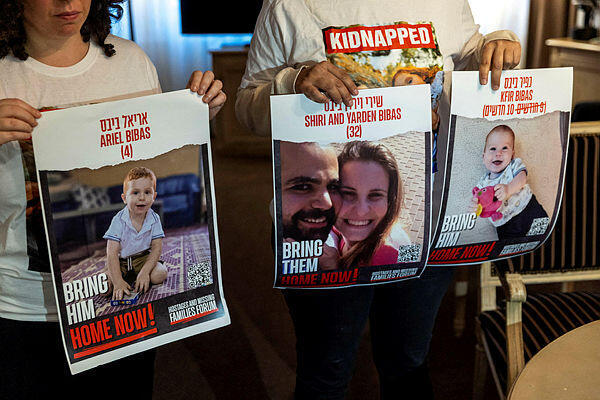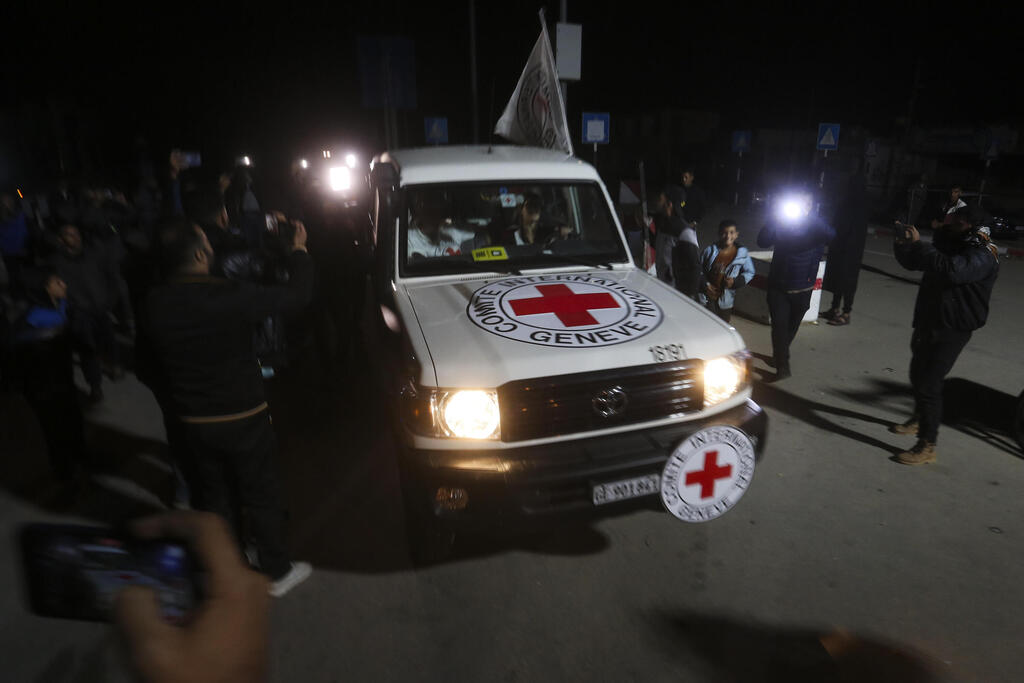At least a third of the 136 hostages remaining in Hamas captivity suffer from chronic illnesses, each at immediate risk of death, according to a report published Tuesday by the Hostages and Missing Persons Families Forum.
More stories:
“The testimonies from those who have been released from captivity reveal severe cases of both mental and physical abuse. This includes brutal sexual assault, which also affects men, mutilation, torture, enforced starvation and dehydration,” the report says.
“On top of that, there is lack of medical care and denial of access to Red Cross representatives. With each day that passes, the health and lives of all the hostages, both men and women, are increasingly at risk.”
According to the report, about a third of the Israelis remaining in Hamas captivity are dealing with chronic illnesses such as diabetes, osteoporosis, anemia, asthma, cancer, inflammatory bowel diseases like ulcerative colitis and Crohn's disease, inflammatory skin diseases, Addison's disease, recurrent urinary tract infections, hypothyroidism, heart diseases, epilepsy, hypertension and other conditions.
For instance, Dolav Yehud, 35, is grappling with kidney disease and thyroid issues. Youssef Alziadna, 53, suffers from diabetes and hypertension, while Omer Wenkert, 22, suffers from ulcerative colitis. Michel Nisenbaum, 59, has Crohn's disease and desperately needs consistent treatment, including intravenous therapy. "Without treatment, he faces severe complications and an immediate threat to his life," the report states.
"The hostages are held in conditions of poor nutrition and inadequate hygiene, affecting everyone, but especially those with complex medical backgrounds and specific nutritional needs," states the report.
"Several hostages suffer from inflammatory bowel diseases that require a specific diet, and without it, they may experience a worsening of their condition, leading to numerous symptoms, some of which are life-threatening.
“Others suffer from celiac disease and have other special needs. One infant, Kfir Bibas, and one toddler, Ariel Bibas, are at risk of death or severe complications if they do not receive nutrition that meets their specific dietary requirements."
3 View gallery


Holding missing posters of the Bibas family which is held hostage in Gaza
(Photo: REUTERS / Denis Balibouse)
Special attention was given to the conditions under which young women are held in the Gaza Strip. "Women are at risk of experiencing sexual violence, a form of violence that has long-term implications on their physical and mental health. Women who have been raped are at risk of dangerous physical injuries, including tears in the vaginal wall and bladder, which can lead to life-threatening bleeding, increased susceptibility to sexually transmitted infections, STDs and damage to future reproductive capabilities.
“Additionally, rape causes a variety of psychological injuries, both immediate and long-term. These may include significant and lasting trauma. Moreover, rape can lead to unwanted pregnancies, which in some cases can be life-threatening without appropriate medical treatment."





